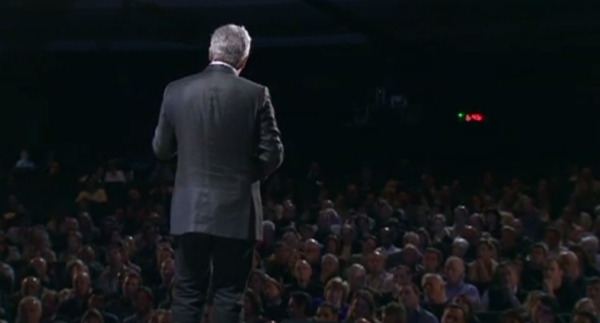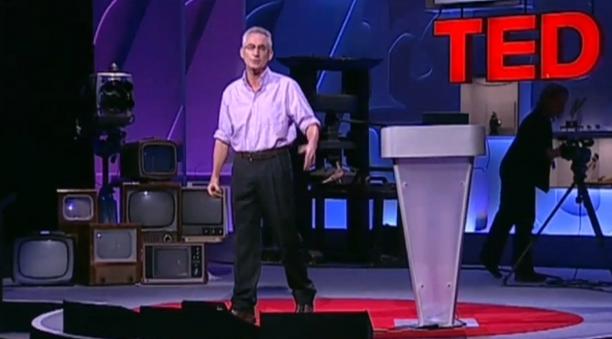


Now You Can Understand Why Connecting To Other People Is Great, Thanks To This Shouting Sociologist
The benefits of a connected life outweigh the costs!” Nicholas Christakis, MD PhD, in his powerful TED Talk “The Hidden Influence of Social Networks,” lays down the omnipotent role of social networks and the benefits of connecting with other people… Social Networks Naturally ‘Sustain & Nourish The Good’ & ‘Reject The Bad’ We form social networks because the benefits of a connected life outweigh the costs. If I was always violent towards you or gave you misinformation or made you sad or infected you with deadly germs, you would cut the ties to me, and the network would disintegrate. So the spread of good and valuable things is required to sustain and nourish social networks. Similarly, social networks are required for the spread of good and valuable things, like love, kindness, happiness, altruism and ideas. If we realized how valuable social networks are, we’d spend a lot more time nourishing them and sustaining them, because I think social networks are fundamentally related to goodness. And what I think the world needs now is more connections.” An Example Showing How Certain Properties Reside Not In Individual Parts, But In The Interconnections Between Them Think about these two common objects. They’re both made of carbon, and yet one of them has carbon atoms in it that are arranged in one particular way – on the left – and you get graphite, which is soft and dark. But if you take the same carbon atoms and interconnect them a different way, you get diamond, which is clear and hard. And those properties of softness and hardness and darkness and clearness do not...![A Cultural Goal In The 21st Century: Building A Global Village [TED Talk]](http://www.mutualresponsibility.org/wp-content/uploads/2012/08/sheikha-al-mayassa-quote.jpg)
A Cultural Goal In The 21st Century: Building A Global Village [TED Talk]
We don’t want to be all the same, but we want to respect each other and understand each other.” Sheikha Al Mayassa is chairperson of the Qatar Museums Authority. In this TED talk she focuses on her small Middle Eastern state of Qatar—and the new emphasis the nation is placing on redesigning their culture to resemble a global village. We are changing our culture from within but at the same time we are reconnecting with our traditions… It’s important for us to grow organically. And we continuously make the conscious decision to reach that balance.” Global & Local And this is what the leaders of this region are trying to do. We’re trying to be part of this global village, but at the same time we’re revising ourselves through our cultural institutions and cultural development.” Towards A Global Village Now over and over again, people have said, ‘Let’s build bridges,’ and frankly, I want to do more than that. I would like to break the walls of ignorance between East and West… Culture’s a very important tool to bring people together. We should not underestimate it. This is a very interesting journey. I welcome you on board for us to engage and discuss new ideas of how to bring people together through cultural initiatives and discussions. Familiarity destroys and trumps fear. Try...![Revising The Formula For Happiness And Success [TED Talk]](http://www.mutualresponsibility.org/wp-content/uploads/2012/08/reality-quote.jpg)
Revising The Formula For Happiness And Success [TED Talk]
What we’re finding is it’s not necessarily the reality that shapes us, but the lens through which your brain views the world that shapes your reality. And if we can change the lens, not only can we change your happiness, we can change every single educational and business outcome at the same time.” Shawn Achor, author of The Happiness Advantage, founder of Good Think Inc. and frequently on-demand speaker for a variety of audiences, discusses problems with the workplace’s current formula for happiness and success, proposes a new formula based on his research and some techniques for its implementation. The Current Formula For Happiness & Success Is Broken If I work harder, I’ll be more successful. And if I’m more successful, then I’ll be happier. That undergirds most of our parenting styles, our managing styles, the way that we motivate our behavior.” What’s The Problem With This Formula? First, every time your brain has a success, you just changed the goalpost of what success looked like. You got good grades, now you have to get better grades, you got into a good school and after you get into a better school, you got a good job, now you have to get a better job, you hit your sales target, we’re going to change your sales target. And if happiness is on the opposite side of success, your brain never gets there. What we’ve done is we’ve pushed happiness over the cognitive horizon as a society. And that’s because we think we have to be successful, then we’ll be happier…” “But the real problem is our brains work in...
